June 7, 2025 | 14:49 GMT +7
June 7, 2025 | 14:49 GMT +7
Hotline: 0913.378.918
June 7, 2025 | 14:49 GMT +7
Hotline: 0913.378.918
Binh Phuoc is known as the cashew capital of Vietnam, with an area of more than 152,000 hectares and an output of 170,000 tonnes/year, accounting for nearly 50% of the country's cashew area and production. Of which, the cashew growing area of ethnic minorities in Binh Phuoc is about 50,000 hectares.
Binh Phuoc's cashew productivity is high due to suitable natural conditions. In particular, this province has introduced high-yield cashew varieties ideal for the ecological sub-region and applied new technical advances in intensive farming to help cashew trees grow well development.
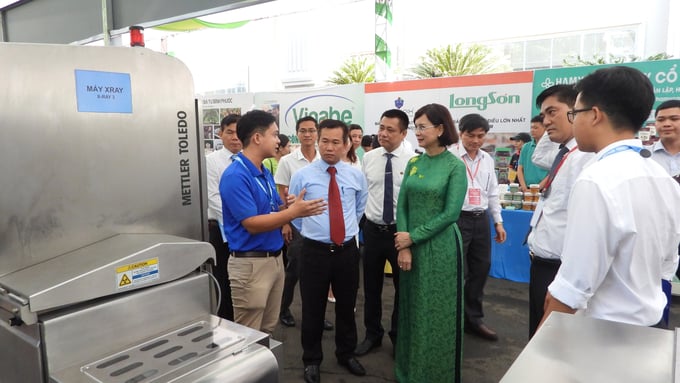
Tran Tuyet Minh, Vice Chairman of Binh Phuoc Provincial People's Committee, and representatives of the Vietnam Cashew Association visited booths introducing cashew processing technology at a recent conference. Photo: Tran Trung.
Cashew processing is a crucial industry and strength of Binh Phuoc, contributing 27 - 45% of the province's total annual export turnover. In 2022, Binh Phuoc's export turnover of cashew products will reach US$ 1.045 billion. Binh Phuoc's processed cashew products are currently exported to over 50 countries. The cashew processing industry has contributed to an intense transformation of the agricultural production structure towards modernity and large commodity production.
In addition to processing cashew kernels for export, thanks to mastering technology, recently, many businesses in Binh Phuoc have also gradually switched to deep processing to diversify products and serve many consumers. The whole province currently has 283 cashew kernel deep processing facilities with 35 products, rich and diverse designs, consumed on domestic and international markets such as honey cashews, roasted cashews with garlic and chili, roasted salted cashews, wasabi cashews, cheese cashews, coconut milk roasted cashews. These products are rated OCOP four or five stars.
Binh Phuoc is also the only locality in the country recognized for geographical indication protection for cashew nuts. The province has nine businesses granted certificates of rights to use the geographical indication "Binh Phuoc Cashew Nuts." This recognition is a tool to help enterprises increase product value, expand markets, increase access to demanding markets, increase global market competitiveness, and ensure sustainable development.
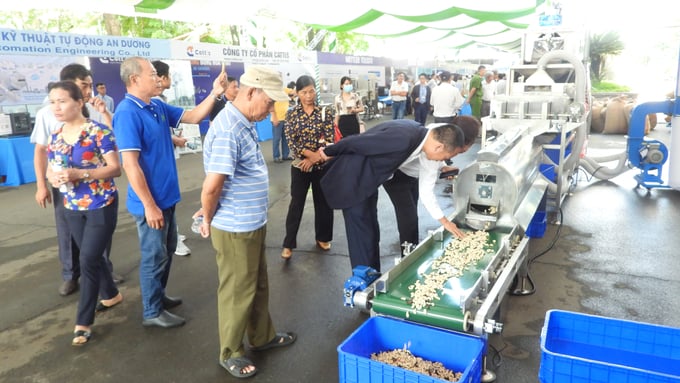
One of the factors that helps the Binh Phuoc cashew industry affirm its position is the gathering of many businesses with modern technology. Photo: Tran Trung.
Also, according to Minh, despite many achievements, Binh Phuoc's cashew industry still has some limitations, such as Processed products are not diverse, mainly in raw form. Hence, the added value is still low and competitive. Pictures of some products are poor; Linkage and cooperation for development along the value chain are still weak; Geographical indications, brand development, brand protection, and international intellectual property for cashew trees have not yet been implemented much; Cultivation techniques and cashew seed transfer still have certain limitations.
Sharing about the challenges in developing the Binh Phuoc cashew industry, Mr. Bach Khanh Nhut - Vice Chairman of the Vietnam Cashew Association, said that after more than 40 years of establishment and development, Vietnam's cashew industry had made great strides: From the tinkering and learning has become a country that masters technology and is the world leader in cashew kernel exports, accounting for more than 75% of the world's cashew kernel exports. In that development process, the Binh Phuoc cashew industry plays a significant and leading role, making Binh Phuoc the capital of Vietnam's cashew industry.
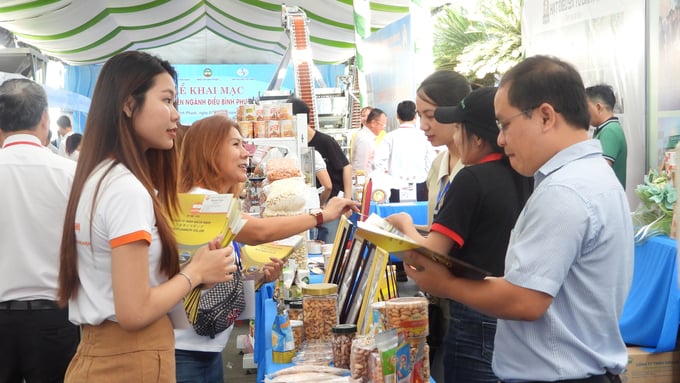
In general, Binh Phuoc cashew nuts and Vietnam are increasingly moving towards deep processing and product diversification. Photo: Tran Trung.
However, there is a paradox in Binh Phuoc. Although cashew nuts harvested in Binh Phuoc have affirmed their quality with a unique delicious taste, a geographical indication for Binh Phuoc cashews has been established. In Binh Phuoc, there are also many processing factories..., but in recent years, the area and output of raw cashew nuts harvested in Binh Phuoc have tended to decrease significantly.
The fundamental, strategic solution for the cashew industry to develop sustainably is to invest and shift powerfully to deep processing with diverse products, meeting end consumers' different needs and tastes", Bach Khanh Nhut pondered.
According to Mr. Tran Cong Khanh, Director of the Cashew Research and Development Center (Southern Institute of Agricultural Science and Technology), the Binh Phuoc cashew industry is facing many difficulties and limitations, such as low productivity, poor competitiveness, unstable prices, Unusual weather developments lead to people being less interested in investing in intensive farming to increase productivity; Cashew production is fragmented, distributed mainly in mountainous and remote areas, where infrastructure is weak, rising production costs and product prices; Linking to develop new raw material areas only stops at cooperative groups and cooperatives; not thoroughly applying scientific and technical achievements.
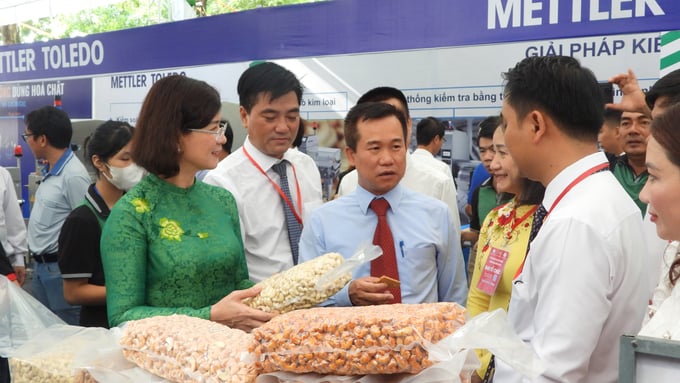
Despite many achievements, Binh Phuoc's cashew industry still has many limitations and has yet to reach its full potential. Photo: Tran Trung.
The Binh Phuoc cashew industry needs to focus on transferring science and technology into production, giving priority to several areas such as production and quality inspection of seeds, fertilizers, and plant protection; bringing biotechnology and good agricultural practice production processes into production; Paying more attention to the preservation and deep processing of products to overcome the above limitations.
Regarding the potential of products processed from Binh Phuoc cashew fruit in the direction of product diversification, Master Duong Thi Ngoc Diep (in charge of the Department of Chemical and Food Technology, Ho Chi Minh City University of Agriculture and Forestry) said that cashew fruit is a by-product of the cashew processing industry that brings high nutritional value, especially vitamin C, which is 5 - 10 times higher than citrus. However, this source of raw materials has yet to be fully utilized.
According to Diep, previous studies were generally individual about each processing process of cashew products. Therefore, there is a need for a comprehensive research process with complete parameters as well as techniques for preserving and processing cashew meat. Utilizing and diversifying products from cashew nuts is necessary to exploit the value of cashew nuts and avoid waste entirely.
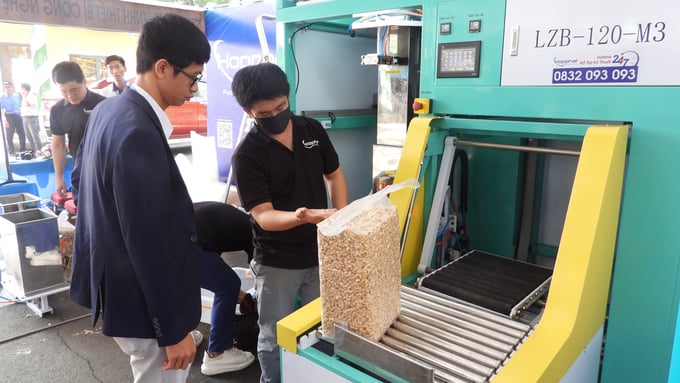
Applying technological advances to production is one of the fundamental solutions the cashew industry needs to focus on implementing immediately. Photo: Tran Trung.
The policy of African cashew-growing countries is to develop the cashew processing industry and gradually reduce raw cashew exports. Therefore, they offer many incentives and support to attract investment in cashew processing factories. At the same time, with raw cashew exports, they regulate and strictly monitor the minimum export price and impose high export taxes. But for exported cashew kernels, they exempt taxes. Meanwhile, when imported into Vietnam for processing and export, raw cashew nuts and cashew nuts are exempted from taxation by Vietnam, which is a sad situation. The Government, ministries, and branches need to look at it multi-dimensionally and objectively as essential to help businesses overcome difficulties and continue to position Vietnamese cashew nuts internationally.
Translated by Ha Phuc

(VAN) Vietnam Agriculture and Nature News interviewed Mr. Vu Thai Truong, Acting Head of Climate Change and Environment at UNDP Vietnam on the occasion of World Environment Day (June 5).

(VAN) On June 5, Deputy Minister of Agriculture and Environment Phung Duc Tien held a working session with the Directorate-General for Maritime Affairs and Fisheries of the European Commission (DG MARE).
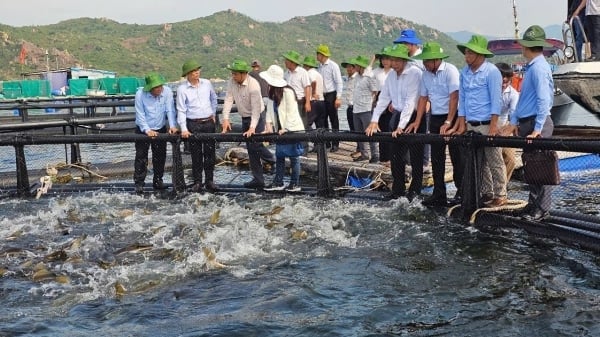
(VAN) According to Prof. Dr. Mai Trong Nhuan, former Director of Vietnam National University, Hanoi, the national ocean spatial plan is devised to guide the ocean economy toward achieving its key objectives.
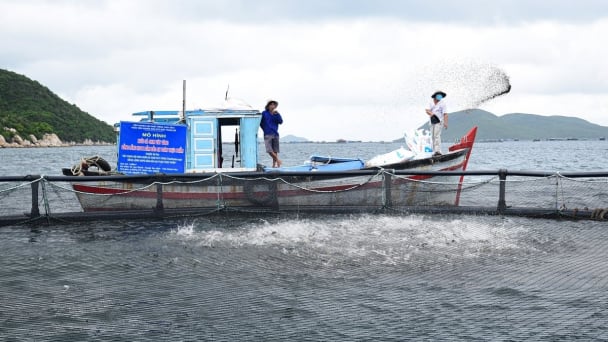
(VAN) Vietnam’s aquatic resources decreased from over 5 million tons in the period 2000-2005 to just over 3.9 million tons in the period 2016-2020.

(VAN) The U.S. Congress recognizes Vietnam's role as a reliable and dynamic economic partner in the Asia-Pacific region.
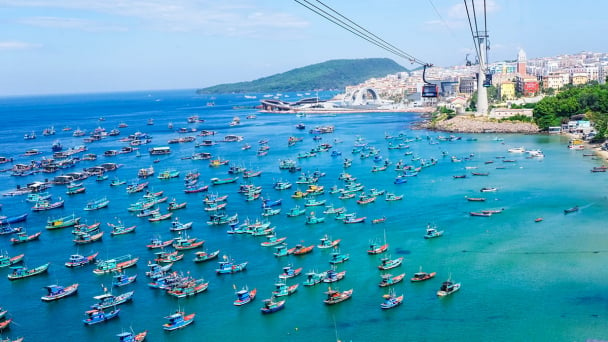
(VAN) Vietnam Sea and Island Week 2025 is a powerful call to action for connecting technology and unlocking policies, aiming towards a modern, sustainable blue ocean.
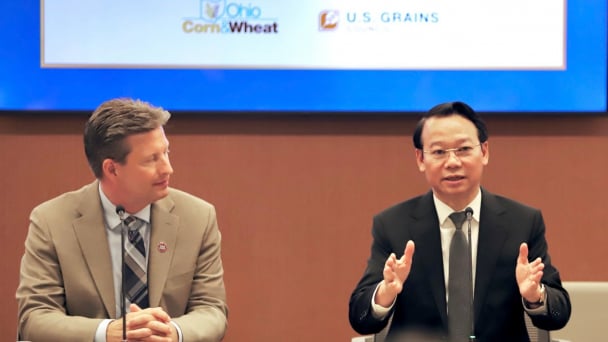
(VAN) With its rapidly growing agricultural economy, Vietnam has become a top destination for U.S. businesses seeking to strengthen their presence in Southeast Asia.